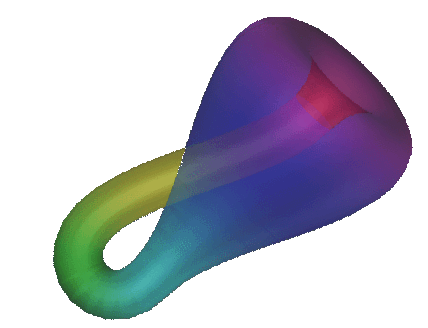 Connectives
Connectives Connectives
ConnectivesIf you love to read, chances are you know the delight of serendipitous associations between books. Time-bound entanglements of phrases, attitudes, metaphors, images, and sensations, they're the trails of waves readers surf when we're not on the Web. I call them connectives, and they're here for you to enjoy, extend, and use as you please.
Update August 2009Connectives is waking from its sleep of the last few years, thanks to Jo Marchant's book Decoding the Heavens; Solving the mystery of the world's first computer. The book is a popular science account of an archeological object known as the Antikythera mechanism, which was discovered about 1901 in a shipwreck of the Greek island of Antikythera, and it uses the common technique of telling the story of the object through the stories of the researchers. One of the researchers, Dr Allan Bromley, was my friend for over 20 years and his work with the Antikythera mechanism was a recurring topic of conversation. I knew as soon as I read it that Jo Marchant's account of him and his work is badly flawed. Allan's wife, Anne Bromley, and I have started an account of Allan and his work, after putting together this point by point critique of the relevant pages of the book. The critique is based mainly on documents in Allan's correspondence files. It was a lot of work (and more could be done) and we often wondered if there was any point to it. The main reason we kept going is that Jo Marchant could have examined these files herself, but she never asked. Finding BooksThe Connectives Booklist contains all the books mentioned in these pages. You'll find one list by Title and another by Author. If you're looking for something Connectives doesn't discuss, you can search for books at Amazon.com or Amazon.com.UK. If you're curious about what other people are buying, or if you just feel like window-shopping for a while, the Amazon.com 100 Hot Books and Amazon.co.uk Hot Books lists are always worth a browse. Connectives is an associate of some online bookstores, which means that they might pay us a small referral fee if you buy a book from them. For details, see Associates, affiliates, and online bookstores on the About Connectives page. |
Current Reading (11 April 2002)Frames of Mind, by Howard Gardner, came into the world in 1985 as a monograph in the field of developmental psychology. I'm reading it in the 10th anniversary edition, with a new introduction by the author in which he discusses a broader context for his idea. The idea itself is that human intelligence comes in several forms, most of which are not recognised, let alone measured, by "intelligence tests". He identifies them as linguistic, musical, logical-mathematical, spatial, bodily-kinesthetic, and personal. The book describes them, and discusses how people learn and train each other to use them. I've spent the last year working almost full time in music, mostly to do with singing. One book that's been an obsession for much of that time is Conducting Technique For Beginners and Professionals, by Brock McElheran. I bought it shortly after I'd agreed to conduct an adult community choir, and studied it with fearful concentration through the first tentative weeks while the choir and I developed some trust in each other's good will and ignorance. There's room for argument with what McElheran says, and I haven't yet seen a choral conductor who works as he recommends, but the book is clear, sensible, brief, and practical. What's more, it's in better shape than most of my music, although it's travelled further and lived rougher. Warmly recommended, if you happen to be interested in conducting musical ensembles. For details, see the Connectives booklist entries: Frames of Mind To see what Connectives was reading in the past, go to Once Current Reading. Current Connective (December 2000)Where do you turn for help when writing gets difficult? To a book of course, but which book? Strunk and White's Elements of Style is among the best known of hundreds of books about English writing and English language, but not necessarily because it's the most useful to a reluctant writer. Steven Pinker, a cognitive scientist, and Thomas McCormack, an editor of fiction, offer deeper information about how writing works, and Gary and Glynis Hoffman's Adios Strunk and White is a handbook of writing for the 2000s. More... Previous ConnectivesConnectives Booklist |
Home Top The Connectives The Books A Booklover's Web About Connectives
Thanks to Ian, who's aching for the day books build their own shelves and climb into them. ILUVU
Copyright © 1999, 2009